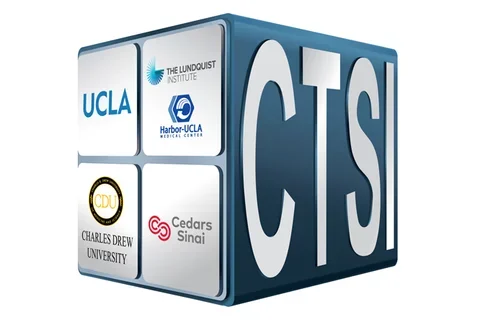CTSI KL2 scholar receives two NIH NIA grants to help reduce low-value care for older adults

CTSI KL2 Awardee, Dr. John Mafi, has performed a rare feat by recently receiving two awards—an R01 award and a K76 Beeson Career Development Award—from the National Institute on Aging, a division of the National Institutes of Health. Both awards focus on the reduction of harmful, low-value care among older adults.
Low-value care is patient care that is considered to provide little to no additional health benefit, and in some scenarios, can cause harm. Low-value services can also lead to costly additional care that may be unnecessary. For those older adults with mild cognitive impairment and dementia (MCID), low-value care is common, and this population is particularly vulnerable to its potential harms e.g., routine benzodiazepine drug prescriptions offer limited benefit to adults with MCID and can cause falls or delirium.
Mafi’s R01, awarded in December 2020, will work to identify approaches to measure and reduce harmful, low-value care for those older patients with cognitive challenges.
To tackle the problem, Mafi’s plan is three-fold. His team will generate national estimates of low-value care trends, costs and harms in older adults with MCID (2008–2018), then identify subgroups of older adults with MCID at the greatest risk of receiving low-value care; lastly, an assessment will be done on whether two current U.S. strategies involving payment reform and a large education campaign are associated with curtailing low-value care to older adults with MCID. To complete these aims, Mafi will link Medicare claims data with the Health and Retirement Study (HRS), a nationally representative longitudinal study of community-dwelling and institutionalized older Americans on the health and economic changes of aging.
“Ultimately, we seek to build a foundation of evidence to inform future U.S. health policies that can reduce low-value care and improve patient-oriented outcomes in older Americans with mild cognitive impairment and dementia,” Mafi said in regards to his goal for the project.
To build on that foundation of evidence, Mafi’s K76 Beeson Award—awarded in September 2020—will also provide him the means to utilize electronic health records (EHR) to rigorously measure and reduce harmful, low-value care among older Americans.
Central to the project will be the development of an EHR-based low-value care measure—or “eMeasure”—for greater accuracy in assigning patients a low-value intervention. Mafi’s team will also design and test an affordable, interventional EHR clinical decision support tool (EHR CDS). This tool will aim to reduce the administration of less useful proton pump inhibitor (PPI) drugs which are associated with some harm to older patients.
“The long-term goal of the project is to develop state-of-the-art and scalable methods to utilize the EHR to measure and reduce harmful, low-value care among older Americans,” Mafi said. He goes on to share his ultimate goal with low-value care research:
“Reducing the delivery of low-value care can improve health outcomes for this vulnerable group by lessening exposure to harms as well as curtailing unnecessary spending.”
If successful, the K76 research could lead to a future multi-site, pragmatic trial.
Each award spans five years and provide a combined total of $3.8 million in funding.
Collaborators on the R01 include Dr. Catherine Sarkisian (UCLA Geriatrics), Dr. Cheryl Damberg (RAND Health), Dr. Joseph Ladapo (UCLA Division of General Internal Medicine and Health Services Research), Dr. Nina Harawa (UCLA Division of General Internal Medicine and Health Services Research), as well as consultants Dr. Kenneth Langa (University of Michigan Geriatrics), and Dr. Mark Fendrick (University of Michigan Division of General Medicine).
K76 collaborators include Dr. Catherine Sarkisian (UCLA Geriatrics), Dr. Cheryl Damberg (RAND Health), Dr. Ron Hays (UCLA Division of General Internal Medicine and Health Services Research), Dr. Eric Cheng (UCLA Neurology), Dr. Noah Goldstein (UCLA Anderson School of Management), Dr. Folasade May (UCLA Vatche & Tamar Manoukian Division of Digestive Diseases), Dr. Samuel Skootsky (Division of General Internal Medicine and Health Services Research), and Dr. Chi-Hong Tseng (UCLA DOMStat).
A number of CTSI services were instrumental in the preparation of Mafi’s R01 application including substantial grant development support from the CTSI Grants Submission Unit. Additionally, the CTSI Workforce Development Program provided a grant studio, mock study section and a grant review during the 2020 K Scholars Society mock study section.
Mafi also receives ongoing mentorship from Dr. Catherine Sarkisian, a leader in the CTSI Integrating Special Populations Program and director of the UCLA Value-Based Care Research Consortium. He also receives mentorship from Dr. Cheryl Damberg, principal senior researcher and distinguished chair in health care payment policy for the RAND Corporation.
Follow Dr. Mafi on Twitter at @jnmafi
Image source: UCLA
Image caption: John Mafi, MD, MPH



